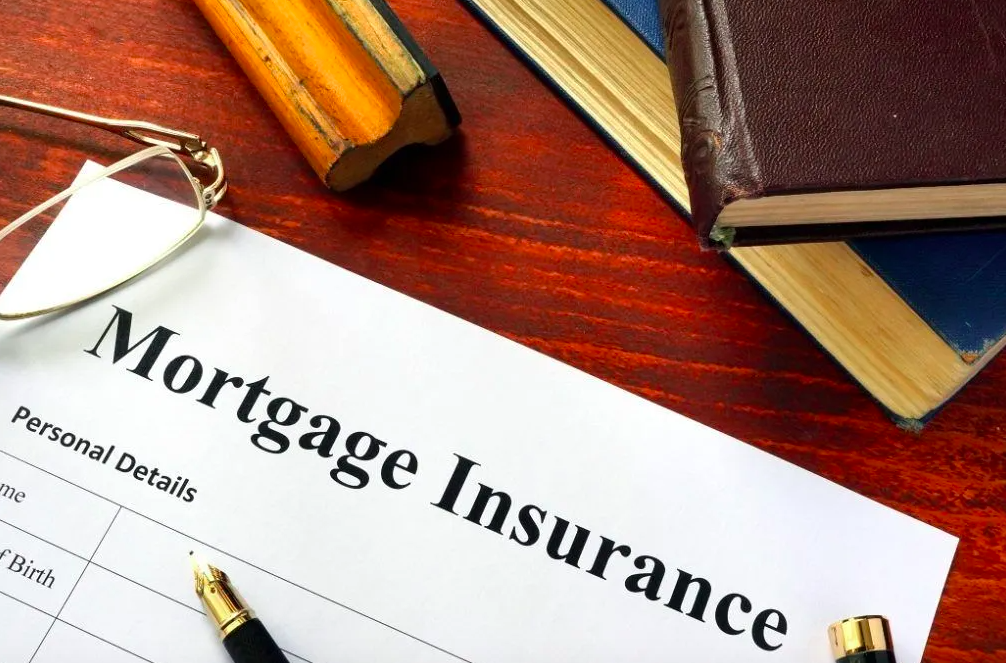Mortgage Insurance is a type of insurance that protects against default on Mortgage loans. When a homebuyer wants to buy or refinance a home then they may be required to pay for Mortgage Insurance as part of monthly payments. Mortgage Insurance protects the mortgage lenders in case the borrower defaults on a home loan. Mortgage Insurance is the financial product that protects the Mortgage Lenders if the homebuyers default on the loan. This allows lenders to take on riskier loans including loans in which the borrowers put down less than 20% of the purchase price.
Mortgage Insurance protects the mortgage lenders if the homeowners can’t make their monthly payments. The homebuyers will typically pay Mortgage Insurance premiums if they can’t make a 20% Down Payment on Conventional Loans or if they only qualify for government-backed mortgage loan programs. Mortgage Insurance can help homebuyers get affordable, competitive interest rates and more easily qualify for a mortgage loan with a Down Payment as low as 3%. In exchange for these better terms, the Borrower pays Insurance Premiums each month usually for at least several years.
When a Borrower purchases a Property, they probably expect to shop around for the best mortgage rates, take out a Mortgage Loan, and make a down payment. However, there is another step the homeowner might need to take. If the Down Payment is less than 20% of the home’s purchase price or they are taking out a particular mortgage such as an FHA Loan then they might also need to buy Mortgage Insurance. For Mortgage Lenders, these are high-risk lending situations, so they require Mortgage Insurance to protect their interests. Mortgage Insurance may be an additional monthly expense that homebuyers need to consider.
What Is Mortgage Insurance?
Mortgage Insurance provides lenders with financial protection against losses if the homebuyers are unable to pay their mortgages. Mortgage Insurance is the insurance policy that protects the Mortgage Lender, but the borrower is the one who pays for it. With Mortgage Insurance, the lender or titleholder is covered in case the homebuyers are unable to pay back the mortgage.
Mortgage Insurance works like regular insurance in that there are monthly premiums paid to an insurance company and when something happens then lenders can file a claim to recoup some of the cost of proceeding with a foreclosure. The foreclosure process is time-consuming and expensive for the mortgage lenders. Mortgage Insurance helps to compensate lenders for their lost interest payments and administrative expenses if a borrower fails to repay their mortgage loans. So the purpose of Mortgage Insurance is to make homeownership more accessible for homebuyers by mitigating the risk for lenders. this allows the lender to offer home loans to borrowers with lower down payments.

How Does Mortgage Insurance Work?
With Conventional Mortgage Loans, homebuyers need to pay for Mortgage Insurance if they put down less than 20% on a Home Purchase. The homeowners have to pay Mortgage Insurance as a monthly fee in their Mortgage Payments. The homeowners can request to cancel it once they have 20% equity. It will be automatically canceled once they have paid off 22% of the original value of the home. With FHA Mortgage Loans, the homebuyers have to pay Mortgage Insurance no matter the size of the down payment. The Mortgage Insurance for FHA Loans comes in two forms such as upfront MIP and annual MIP. If the homeowners make a down payment of less than 10% they will pay annual MIP for the life of the Loan. If the homeowners put down 10% or more, they will pay annual MIP for 11 years, or until they refinance or sell.
What Are the Types of Mortgage Insurance?
The Types of Mortgage Insurance the Homebuyers will need depends upon several factors including the kinds of loans they have. Since Mortgage Insurance protects the lender, then they will choose the insurer that provides the Insurance policy. The various types of Mortgage Insurance on a Mortgage Loan include:
- Private Mortgage Insurance (PMI): Private Mortgage Insurance (PMI) is required for a Conventional Mortgage Loan with less than 20% Down. This fee is typically rolled in with their monthly payment.
- FHA Mortgage Insurance Premium (MIP): The Mortgage Insurance Premium (MIP) is paid upfront at closing and annually. All FHA Mortgage loans require MIP, regardless of the size of the Down Payment. MIP requires an upfront fee, equal to 1.75% of the loan amount, plus annual fees, which vary based on loan term and loan amount.
- USDA Guarantee Fees: Similar to Mortgage Insurance, the USDA Guarantee Fee is the cost added to obtain a USDA Loan. The USDA Mortgage Loans offers 0% Down Payment options for qualified borrowers in exchange for guarantee fees, which are paid in an upfront payment plus annual payment, and serve the same purpose as mortgage insurance.
- VA Funding Fees: The VA Mortgage Loans don’t require Mortgage Insurance or a Down payment for those who qualify for these Mortgage Loans. However, the borrowers need to pay a VA funding fee at closing if they don’t roll it into their loan balance.
How Much Does Mortgage Insurance Cost?
Mortgage Insurance costs vary depending upon several factors such as the Type of Mortgage, the Loan size, The Loan term, the Initial Down Payment, and the Credit Score. Let’s break down by loan types:
- Conventional Mortgage Loans: Private Mortgage Insurance (PMI) costs for conventional mortgage loans can vary widely depending upon various factors. On an annual basis, the average cost, ranges from 0.46% to 1.5% of the loan amount, according to an analysis by the Urban Institute.
- FHA Mortgage Loans: The FHA Mortgage Loans require an upfront MIP and annual MIP. The Upfront Mortgage Insurance Premium (MIP) is 1.75% of the Loan amount. The Annual Mortgage Insurance Premium (MIP) ranges between 0.45% and 1.05% for that Loan.
- USDA Mortgage Loans: The USDA Mortgage Loans come with upfront guarantee fees of up to 3.5% of the loan amount, as well as an annual fee that can be up to 0.5% of the loan amount.
- VA Mortgage Loans: The VA Loan Funding fees range from 1.25% to 3.3%.
How Is Mortgage Insurance Calculated?
Mortgage Insurance is based on the Borrower’s Loan amount. To estimate how much homebuyers have to pay for Mortgage Insurance, then they will first need to calculate their Loan-to-value (LTV) ratio. To do this, homeowners need to divide their Loan amount by their property value. after that, the borrowers have to multiply this by their Mortgage Insurance percentage, which their mortgage lenders provide. The Mortgage Insurance percentage can range from 0.22% up to 2.25%, they have to use these percentages if they don’t have a Mortgage Insurance percentage from their lenders.
Pros and Cons of Mortgage Insurance
Here are some upsides and downsides of Mortgage Insurance:
Pros:
- Don’t need to put 20% down to get a Mortgage.
- Start building equity sooner.
- More money to spend on other things like home appliances instead of putting it towards a larger down payment.
Cons:
- Extra expenses to pay.
- Mortgage Insurance can be hard or impossible to cancel, depending on the type of loan.
- Mortgage Insurance Protects the mortgage lenders, not the homebuyers.
Frequently Asked Questions (FAQs)
Question 1: How Long do you Pay the Mortgage Insurance?
Answer: The duration of the Mortgage Insurance premiums depends upon the loan programs and specific terms of the mortgage agreements.
Question 2: Is Mortgage Insurance refundable?
Answer: The Mortgage Insurance may be refundable under certain circumstances. the specific rules and requirements for Mortgage Insurance refunds vary between loan programs and mortgage lenders. So it is most important to discuss with a mortgage loan expert about it. However, the Mortgage Insurance premiums for FHA Loans, funding fees for VA Loans, and Guarantee fees for USDA Loans are generally non-refundable.
Question 3: How can I Get rid of Mortgage Insurance?
Answer: You can get rid of Mortgage Insurance in many ways, including paying down your loan, refinancing, or requesting cancellation when you reach 20% equity in your home. Keep in mind if you have an FHA Mortgage loan and if you put down less than 10%, you can not get rid of the Mortgage Insurance unless you refinance to the different types of loan.
Question 4: Is Mortgage Insurance Tax-deductible?
Answer: No, The itemized deduction for this cost has expired, so unless legislation renews it, homeowners won’t be able to claim a tax perk for their mortgage insurance premiums.
Question 5: What does Mortgage Insurance cover?
Answer: Mortgage Insurance acts as the insurance protection for the Mortgage Lenders in case the homeowners end up unable to make mortgage payments. This type of insurance relieves the lenders of any responsibility for those mortgage payments.
Question 6: How Long Do I need to have the Mortgage Insurance?
Answer: In most cases, you won’t have to continue paying Mortgage Insurance for the entire length of the mortgage loan. Most Mortgage Insurance plans allow you to cancel your insurance policy once you have paid off more than 20% of the full amount of your home.
The Bottom Lines
Mortgage Insurance offers greater access to homeownership for borrowers who are unable to pay 20% on a down payment. The Mortgage Insurance protects the mortgage lenders if the homebuyers can not meet their mortgage obligations. The Mortgage Lenders require homeowners to pay Private Mortgage Insurance if they put down less than 20% on conventional mortgage loans, However, homebuyers can request to drop the insurance once they have sufficient equity. For government-backed FHA loans, the homebuyers need to be required to pay mortgage insurance premiums for the life of the loan.
